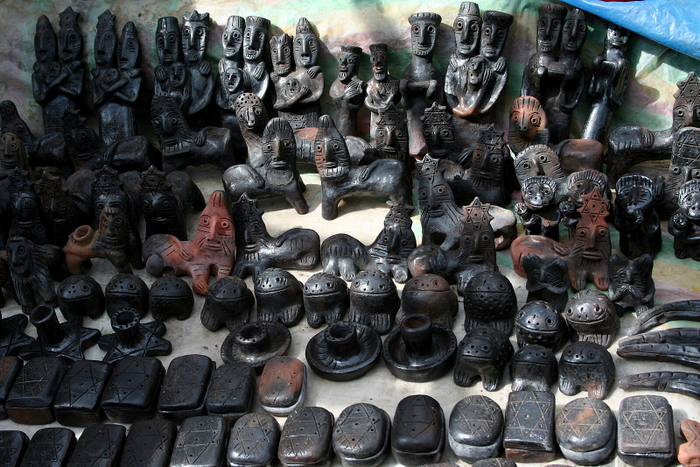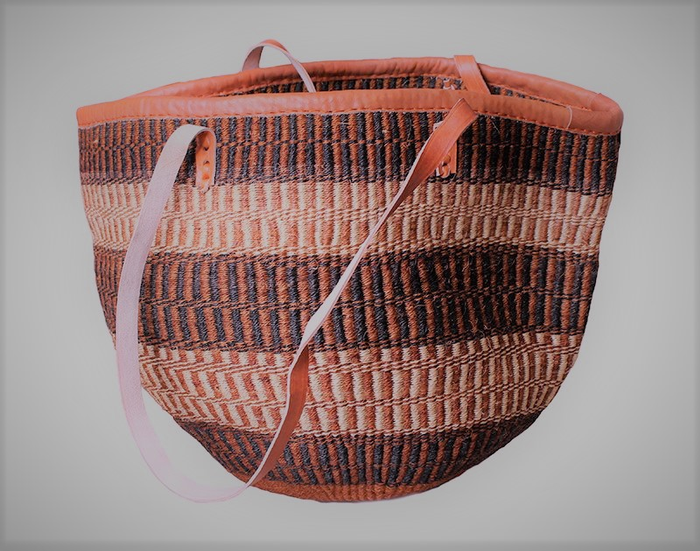Image: Women weaving sisal baskets in Kenya. Source: Wikimedia Commons
Technology now dominates industries in today’s modern world. Businesses not only collaborate and connect across the globe but have also boosted their efficiency through automated processes.
Before the digital revolution, traditional skills learned by artisans and craftspeople had been instrumental in helping businesses meet daily production quotas. As a result of the years spent honing these techniques, these traditional skills have helped set them apart through the production of authentic and distinct products.
In East Africa, each country has a unique art form and craft tradition that is a reflection of its culture and history. By applying these traditional skills, modern businesses would not only create a niche for themselves but also build sustainability in the long run.
Here is a list of some local artisans and craftsmen in East Africa and how their skills can be preserved in modern businesses;
Ethiopian Pottery Craftsmen

Pottery in the Falasha village in Gonder, Ethiopia. Source: Wikimedia Commons
In Ethiopia, pottery making is an art that requires skills in good hand-eye coordination, a good hand-building technique for pressing moulds and shaping, as well as a sharp eye for decorative designs. Ethiopian potters tend to enjoy a generational transfer of these skills which is taught mostly by immediate family members.
In modern businesses, these skills relate to creativity, discipline, meticulousness, and attention to detail which is invaluable in managing projects, and assignments and seeing to their successful execution. Transforming clay into a finished pottery product is applicable in a production line where goods must attain the expected standard.
Kenyan Sisal Baskets

Sisal basket. Source: Wikimedia Commons
Sisal baskets are a traditional basket weaving where the Sisal plant is harvested and the fibers extracted, dried, and dyed before the commencement of the weaving process. The skills that go into weaving these baskets require an understanding of color, patterns, and eye-hand concentration. The durability and stylish nature of these bags is a technique that is transferred through generations and is continually practiced by skilled craftspeople.
An understanding of color patterns and their influence on consumer awareness, and purchase decisions is what modern businesses look for in branding and marketing purposes. The skills in basket-making apply to such business models. Also, attention to detail as a skill in basket-making is suitable for problem-solving in organizations.
Ugandan Blacksmiths

Bukola Blacksmith in Uganda. Source: Lake Bunyonyi Rock Resort
To thrive in the world of the Ugandan blacksmith it is required to possess the skill of burning, hitting, splitting, and forge welding. These are expertise that is passed down through an ancestral line or is learned from years of practice under an accomplished blacksmith. Knowledge of iron and other metals is crucial in ensuring a blacksmith can manipulate metals into objects for various uses.
In modern businesses, the duteous craftsmanship of the blacksmith makes their skill a valuable asset in the jewelry, metal fabrication, and construction industries. The capacity to forge and shape metals to desired shapes can us used to create stand-out quality pieces that meet a growing need in the market especially in the world of jewelry making.
Mozambique Wood Sculptors

Image: Mozambique wood sculpture of a group of women by artist Jafeth Moiane, Saatchi Art
The skill of being a sculptor in Mozambique’s world of wood carvings involves painstaking years of practice that is transferred through generations. A certain level of artistic ability is needed to succeed in the trade. Other skills such as knowledge of the material being used, good motor skills, good eye coordination, and knowledge of the appropriate tool are all critical to producing unique art pieces.
Would sculpting require patience, strong attention to detail, creative imagination, and problem-solving skills which are of great benefit to modern businesses? The craftsmanship applied in creating authentic masterpieces can be applied to product design and branding. Furniture industries or companies that create corporate gifts can incorporate such craftsmanship into their business operations.
In conclusion, artisans and craftsmen in East Africa possess numerous skill in several craft that ranges from woodcarving, garment making, shell and bead crafting, pottery, weaving, and other crafts. These skills are suitable for modern businesses such as interior designing, furniture making, garment manufacturing, and construction.
Incorporating these skills brings a uniqueness that promotes cultural diversity while piquing customer interest.

Okechukwu Nzeribe works with the Onitsha Chamber of Commerce, in Anambra State, Nigeria, and loves unveiling the richness of African cultures. nextquestservices@gmail.com





